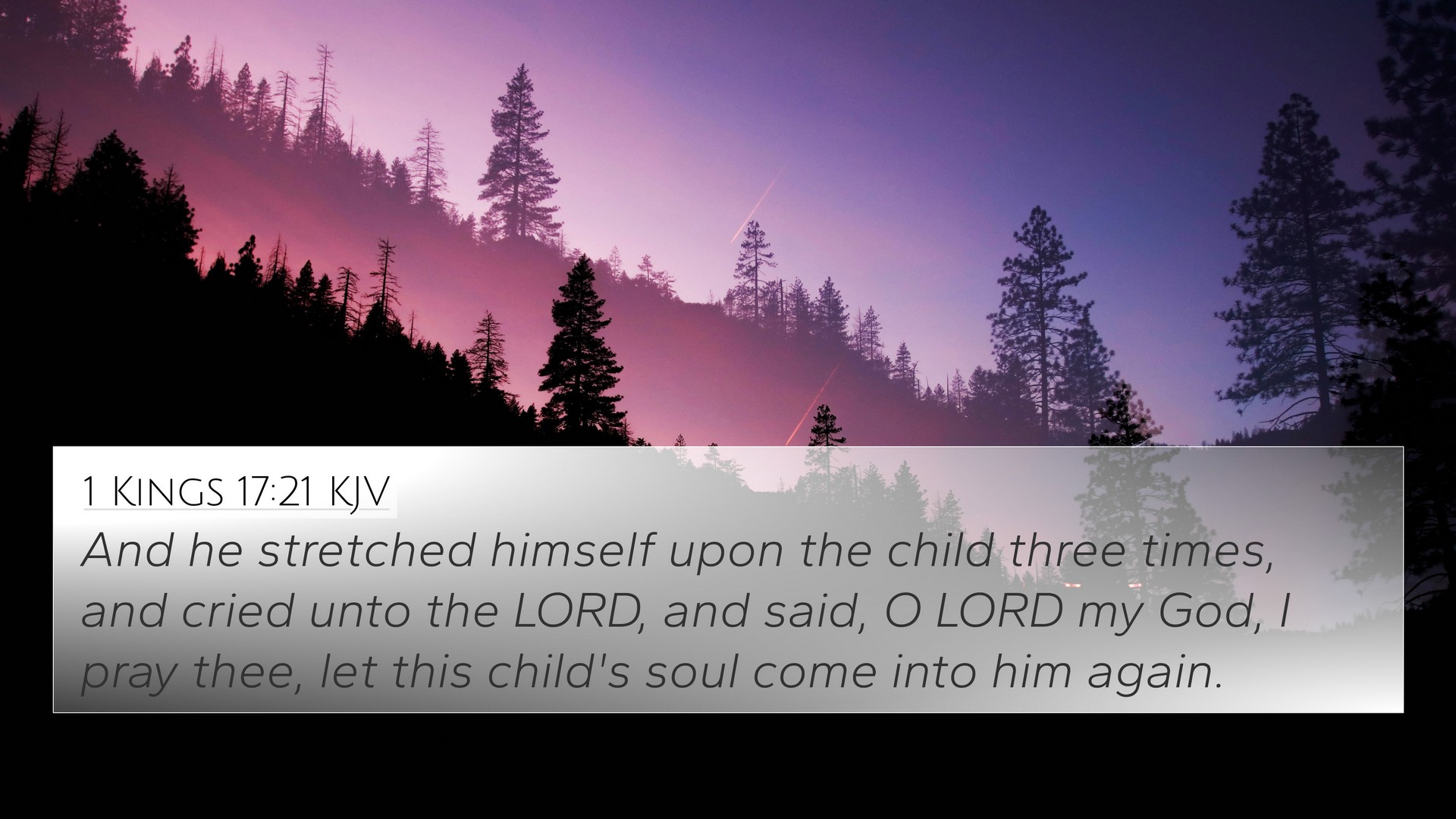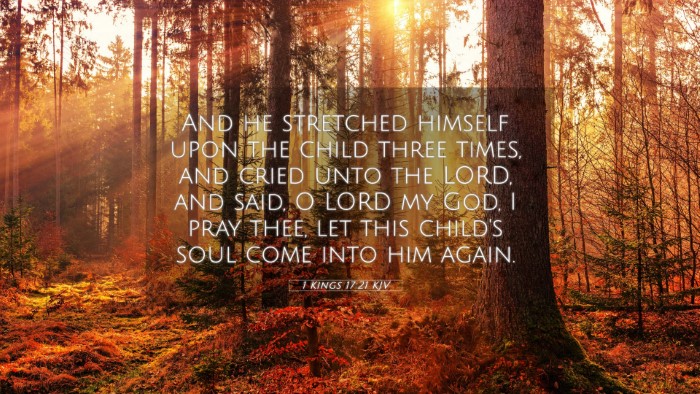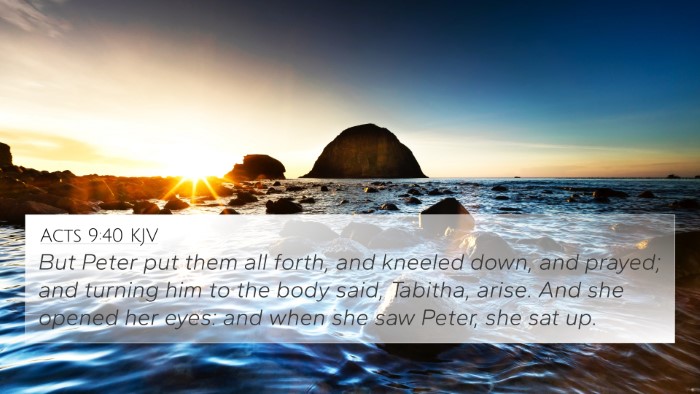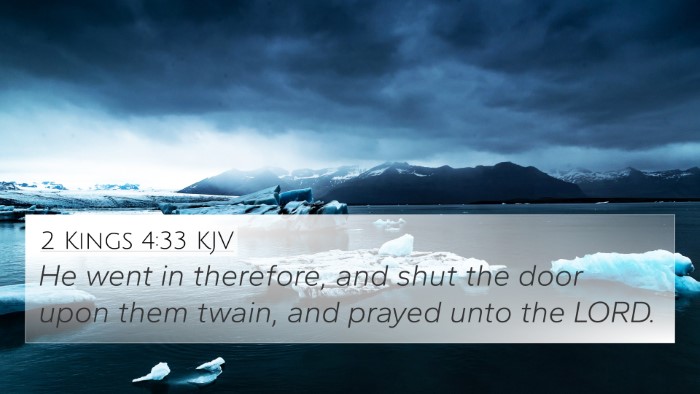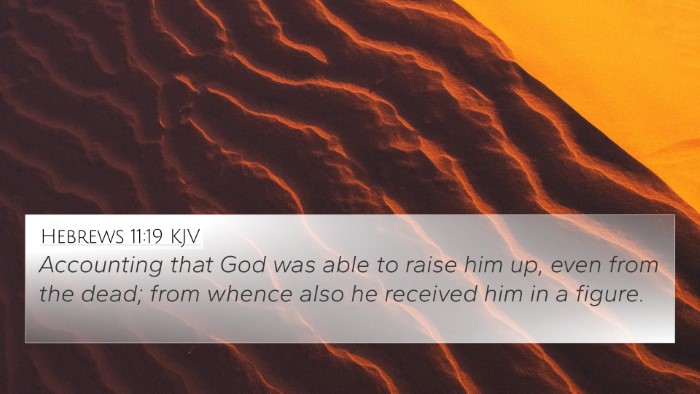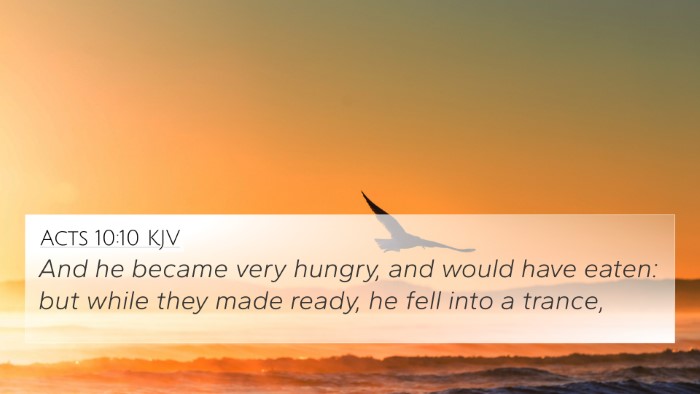Understanding 1 Kings 17:21
Bible Verse: 1 Kings 17:21 - "And he stretched himself upon the child three times, and cried unto the LORD, and said, O LORD my God, I pray thee, let this child's soul come into him again."
Summary and Interpretation
This verse captures the poignant moment of desperation and faith demonstrated by the prophet Elijah as he seeks God's intervention in a critical situation. The context reveals that Elijah had been living in Zarephath during a time of severe drought and famine, and the widow's son had become ill and died. Elijah’s actions here—stretching himself upon the child and crying out to God—illustrate powerful themes of intercession, divine intervention, and faith.
Commentary Insights
Insights from various public domain commentaries provide a deeper understanding of this verse:
-
Matthew Henry Commentary:
Henry emphasizes God's mercy and the importance of prayer. He notes Elijah's physical demonstration of grief and faith, suggesting that it reflects the intensity of his prayer life.
-
Albert Barnes’ Notes:
Barnes discusses the act of stretching himself upon the child, which symbolizes a deep empathy and a direct appeal to God for restoration. He also highlights that Elijah's prayer indicates a relationship built on faith and trust in God's ability to bring life back.
-
Adam Clarke's Commentary:
Clarke provides additional context regarding the miraculous nature of the event. He points to the significance of the triad (three times stretched) as a representation of earnestness before God, reminiscent of persistent prayers found throughout Scripture.
Thematic Connections and Cross-References
This verse invites numerous thematic connections and cross-references within Scripture that enrich our understanding:
- 1 Kings 17:22: It presents the culmination of Elijah’s prayer as the child is revived, demonstrating the power of intercessory prayer.
- James 5:17-18: This passage highlights Elijah's effective prayer life, underlining the fervent prayer of a righteous person and God's responsiveness.
- Luke 7:12-15: The story of Jesus raising the widow's son mirrors the events of 1 Kings, emphasizing the continuity of God’s miraculous intervention throughout the ages.
- John 11:43-44: Jesus raising Lazarus serves as another example of resurrection power, inviting contemplation on the authority of Christ over life and death.
- 2 Kings 4:32-35: Elisha's encounter with the Shunammite woman's son further illustrates the themes of resurrection and divine compassion in the prophetic ministry.
- Romans 8:11: This verse speaks to the spirit of life that raises Christ from the dead, linking it to the life-giving power attributed to God.
- Psalm 30:2: Here, the psalmist expresses confidence in God's ability to heal and restore life, echoing the sentiments found in Elijah's prayer.
Applications for Study and Reflection
This verse and its surrounding context provide a wealth of material for thematic Bible verse connections and comparative Bible verse analysis:
- Consider your own moments of desperation—how might you bring those to God in prayer?
- Reflect on the idea of intercessory prayer; who are you called to pray for fervently?
- Think about the relationship between faith and the miraculous—how do these stories encourage you?
Tools for Bible Cross-Referencing
For those studying Scripture, various tools can enhance your understanding of these connections:
- Bible Concordance: A listing of words and phrases from the Bible to find related scripture.
- Cross-Reference Bible Study: Guides that help identify similar themes or narratives across Biblical texts.
- Bible Reference Resources: Comprehensive lists or databases that present inter-Biblical dialogues.
- Cross-Referencing Bible Study Methods: Techniques on how to connect different Bible verses for deeper understanding.
Conclusion
1 Kings 17:21 showcases a moment of profound faith and divine interaction. Through Elijah's earnest prayer for the widow's son, we see a powerful example of how God responds to the cries of His people. As we explore and link this verse to others throughout Scripture, we find a rich tapestry woven with themes of life, death, and the God who hears our prayers. May this study encourage a deeper connection with Scripture and strengthen faith in God’s restorative power.
